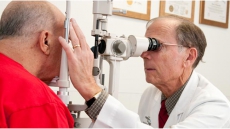Blocking a protein that acts like switch to wake us up may help prevent Alzheimer's disease, new research has found, pointing towards a new target to prevent this devastating brain disorder.
The new research, in mice, demonstrates that eliminating that protein - called orexin - made mice sleep for longer periods of time and strongly slowed in the brain the production of amyloid beta protein plaques characteristic of Alzheimer's disease.
"This indicates we should be looking hard at orexin as a potential target for preventing Alzheimer's disease," said senior author David Holtzman from Washington University School of Medicine in St. Louis.
"Blocking orexin to increase sleep in patients with sleep abnormalities, or perhaps even to improve sleep efficiency in healthy people, may be a way to reduce the risk of Alzheimer's," Holtzman pointed out.
Researchers had earlier found that sleep loss may increase risk of Alzheimer's in both people and mice.
Orexin is made by cells in the brain's hypothalamus that stimulate wakefulness.
"These cells have branches that carry orexin throughout the brain, and the protein acts like a switch," Holtzman explained.
In the current study, the researchers worked with mice genetically engineered to develop a build up of amyloid in the brain.
When the researchers bred these mice with mice lacking the gene for orexin, their offspring slept longer, typically an extra hour or more, and developed only half as many Alzheimer's plaques, compared with the mice that had the orexin protein.
When scientists reversed the experiment and artificially increased orexin levels throughout the brain, the mice stayed awake longer and developed more Alzheimer's-like plaques.
The study appeared in The Journal of Experimental Medicine.





